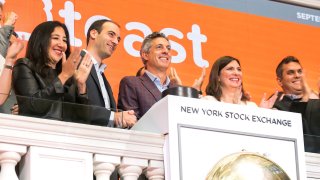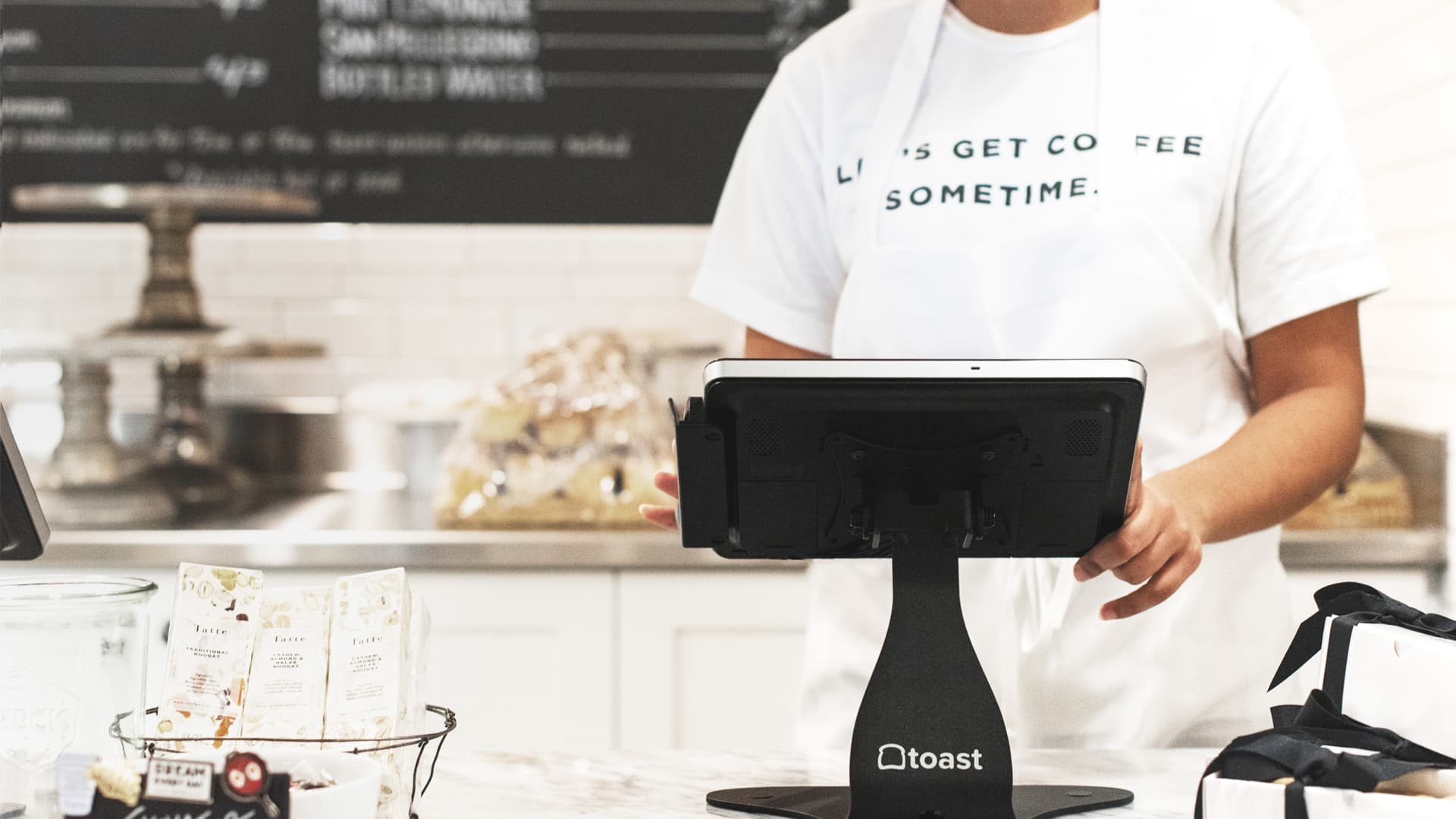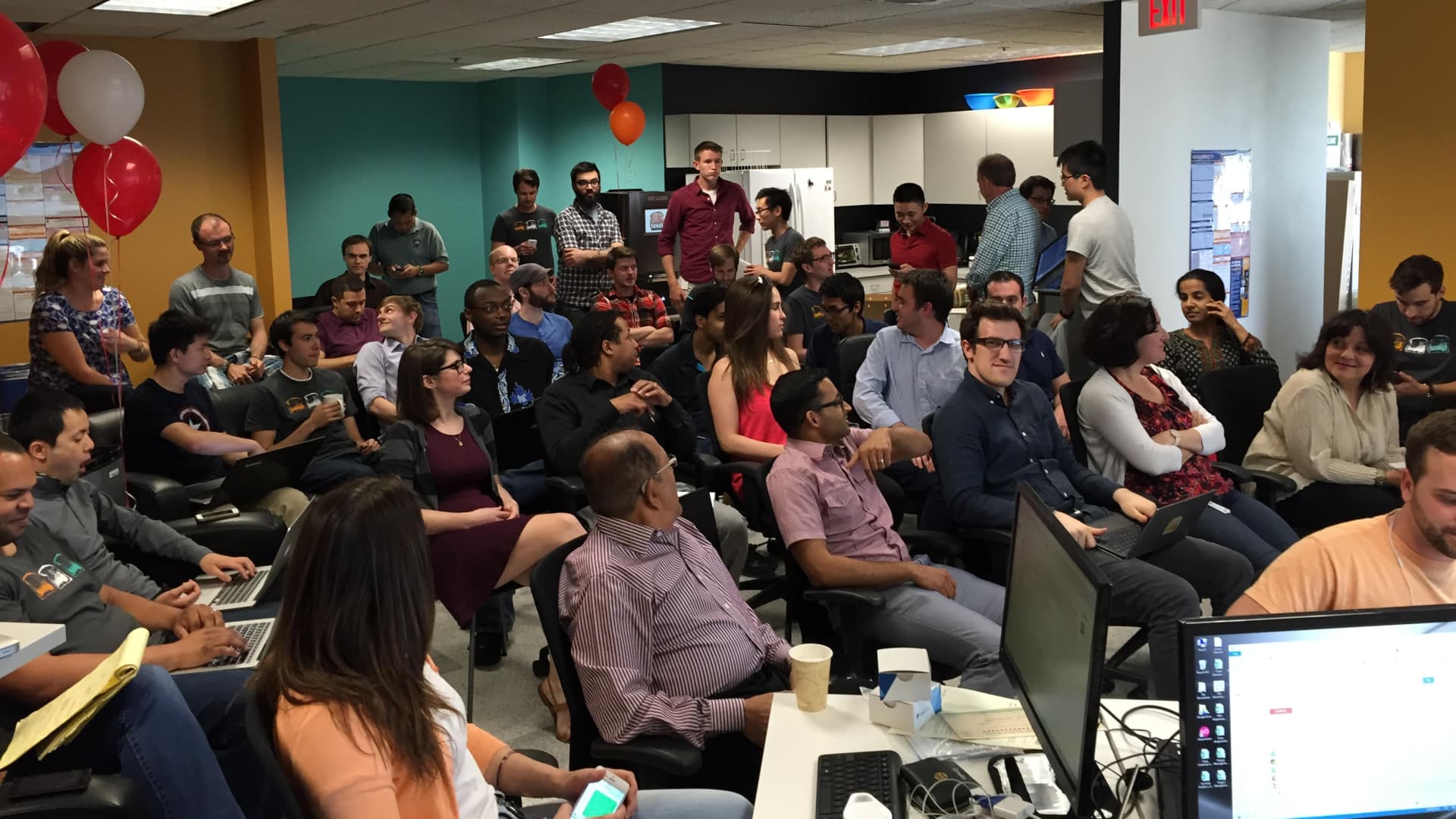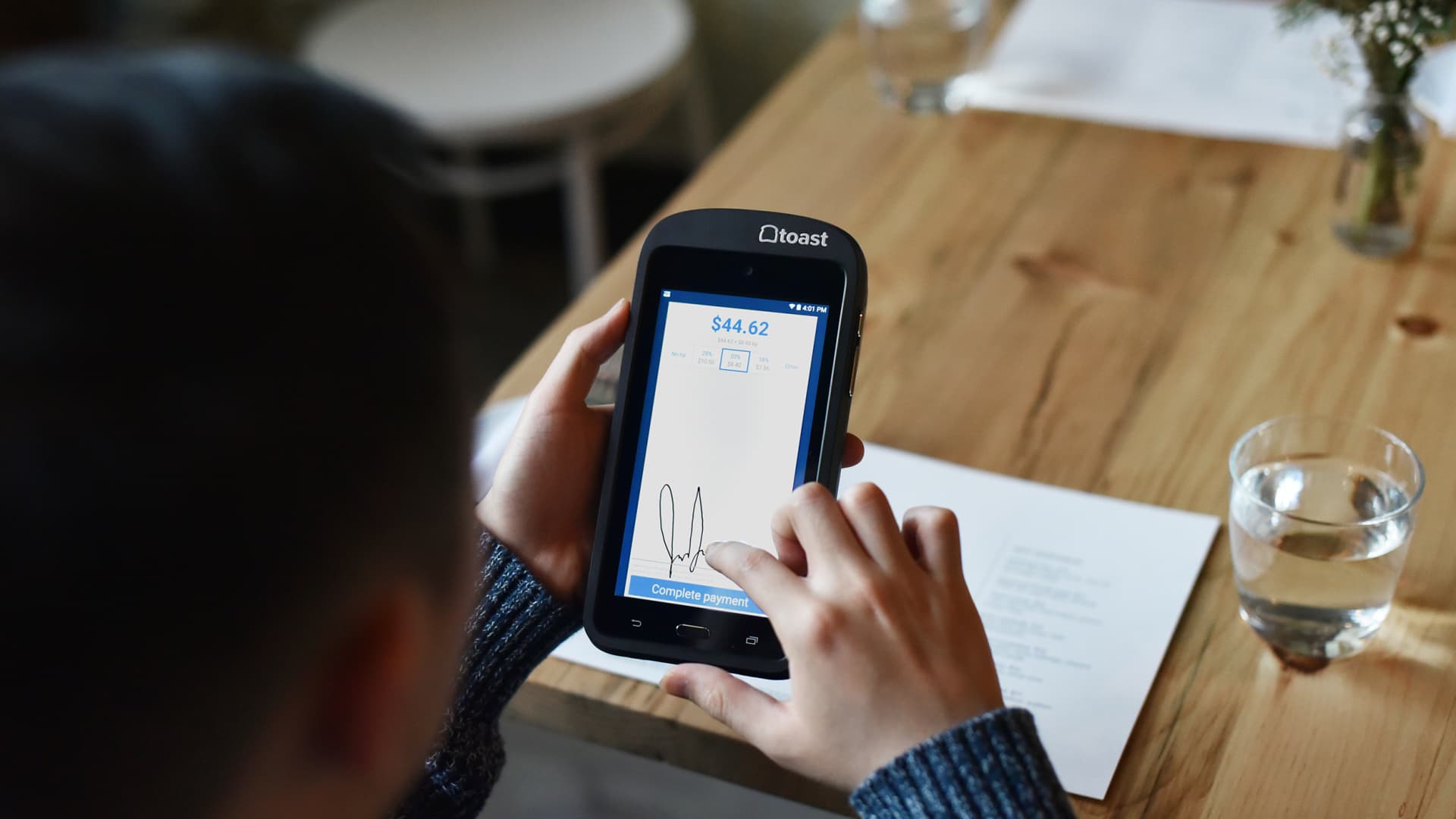
- Toast's first backer, Steve Papa, invested in the company because no venture capital firm would write the initial check.
- By the time Bessemer Venture Partners led the first institutional round in 2015, the company had millions in revenue, 170 employees and was deployed in thousands of restaurants.
- "We intentionally chose not to put reps in Silicon Valley," Papa said.
Not long after selling software company Endeca to Oracle in 2011 for over $1 billion, Steve Papa called Bessemer Venture Partners with a hot tip. He said three of his best engineers were working on something new that Bessemer, which had previously backed Endeca, would be crazy not to fund.
Kent Bennett, who'd been a junior associate on the Endeca deal, fielded the call. He told Papa there was some empty space at the firm's office in Boston that his people could use. But Bennett knew he couldn't get his firm, one of the biggest and most successful in the venture industry, to write a check to three engineers with an unspecified project.
"I said, 'Well just send them over here and they can hang out here until they figure it out,'" Bennett told CNBC, recalling his conversation with Papa.
Get Southern California news, weather forecasts and entertainment stories to your inbox. Sign up for NBC LA newsletters.
The three guys and some office space eventually became Toast, a provider of software and hardware to restaurants that held its New York Stock Exchange debut on Wednesday, closing the day with a market cap of over $31 billion. (It's since slipped to $28 billion.) The three co-founders — Steve Fredette, Aman Narang and Jonathan Grimm — are billionaires, and remain top executives at the company.
Fredette, Narang and Grimm now have about 2,200 co-workers. They call them Toasters.
Money Report
Bessemer eventually ended up investing in Toast in 2015, and Bennett joined the board. But even though it's one of the largest holders, with over a 12% stake, the returns would've been much larger had Bessemer jumped in earlier.
Bennett told one of his partners he'd made a "massive mistake" by passing. It wasn't just Bessemer. Venture capitalists wanted nothing to do with the restaurant industry, where margins are low and budgets notoriously tight.
So in early 2013, Papa filled the initial void by investing $500,000 of his own money into his buddies' start-up.
"I said, 'guys it's not my space, but you helped me be successful, and I owe it to you,'" Papa, who was on the Toast board until recently, said in an interview after the IPO. "I was going to help them no matter what. In this case it meant capital to get them going. Did we understand the shape of it at that time? No."
Papa's investment today can be measured in billions. As of Friday's close, his 12% stake in Toast is worth $3.1 billion, amassed from the initial investment and follow-on funding. He controls slightly less than Bessemer, which owns $3.3 billion in Toast shares after investing just over $100 million between 2015 and early 2020.
No 'West Coast offense'
Start-up origin stories are part of the fabric of the tech industry. Apple and Google famously started in Silicon Valley garages, Facebook was built by a boy-wonder Harvard dropout, and PayPal came together through an awkward collaboration between Elon Musk and Peter Thiel and included an exhaustive list of engineers who would go on to build other billion-dollar companies.
Increasingly, Silicon Valley stories have become more formulaic, thanks to programs such as Y Combinator, which has turned into a Unicorn factory over the past decade. The start-up incubator has helped spawn Dropbox, Airbnb, Stripe, DoorDash, Coinbase and Instacart, and serves as a direct path to meetings with the top venture capitalist firms.
Toast was born on the other side of the country and a world away. The founders lived in the Boston area and had no plans to leave. Boston had been a venture hub in an earlier era, but the momentum had shifted to Silicon Valley, where all the big exits were taking place. Bessemer has offices in both locations.
Papa said one Bay Area VC indicated interest in the pitch for Toast, but said he didn't want to get on a plane.
Fredette, Toast's president, said the company's East Coast roots ultimately became an advantage because it could be "a little unconstrained by the traditional wisdom of grow, grow, grow."
"We used to talk about West Coast offense, which was hype over substance," Fredette said in an interview from the NYSE on Wednesday. "East Coast would be substance first and not enough hype."
The founders sprinkled in a healthy dose of naivete. Fredette said they were so inexperienced with fundraising and business in general that he and Narang, the chief operating officer, would often debate each other during investor meetings.
The original idea for Toast came from all the hours Fredette, Narang and Grimm spent hanging out in Boston bars, cafes and restaurants trying to figure out what to build. After experiencing a particularly long wait time for the check one day, they thought they'd found a problem that could be fixed by paying the check from their smartphone — if only the technology existed.
They developed an app and launched it in 2012 with Firebrand Saints, a bar they frequented in Cambridge. The app gave customers a way to start a tab at the restaurant and link a credit card.
"We used to go there a lot after work to get a burger and a beer," Fredette said.
As they slowly expanded in the region, they signed up Dwelltime, a cafe in Cambridge.
That's where Bennett got to demo the product. The transaction went through. Still, Bennett was terrified of putting money into a company that was trying to take on incumbent point-of-sale (POS) vendors like Micros, which Oracle bought in 2014 for $5.3 billion, and NCR.
"To me it sounded like a suicide mission," said Bennett, recalling that he told the founders it would take them five years to build something viable. "These legacy systems were old and painful but they were 50,000 features into a really complex roadmap."
Meanwhile, Papa would soon start flying around the country trying to help land new business deals and recruit talent.
One place he wasn't going: The Bay Area.
"We intentionally chose not to put reps in Silicon Valley," Papa said. As long as potential competitors didn't see the product in action, they could continue "arrogantly dismissing it," he said.
Instead, Papa was traveling to places like Grand Rapids, Michigan, home to a 124-year old company called Gordon Food Service. Gordon distributed food to restaurants across the country and became a critical distribution partner for Toast.
"We focused on the middle of the country, which was mostly overlooked," Papa said.
Toast quickly evolved from a relatively simple mobile app at Firebrand Saints and a few other spots to a more complete back-end restaurant system that used Android tablets as terminals. At the time, iPads were the far superior product, and were being used by buzzy start-ups like Revel Systems.
Toast opted for Google's open source Android technology, which allowed the company to design its own hardware and customize software rather than being restricted to Apple's closed system.

By late 2015, Toast was up to 170 employees, had millions of dollars in revenue and was used in thousands of restaurants, including Costa Vida, a Mexican-themed chain with 75 locations, and Beach Hut Deli, which had 40 locations on the West Coast. Chris Comparato, another Endeca alum, had just joined as CEO.
That's when Bessemer finally took the plunge, leading a $30 million round along with Google's venture arm at a valuation of about $100 million. Bennett said the big move that changed his thinking was Toast's push into payments. As a full POS vendor that was getting a cut of every transaction on the system, Toast at last had a volume business with a consistent and profitable revenue stream.
They used margin from payment processing to support software development, Bennett said, and the business model clearly worked. In a memo to the firm in December 2015, Bennett wrote that "we've stood by anxiously as the team hit obvious product-market fit but punted on raising more equity."
To get onto the cap table, Bennett was having monthly dinners with the founders trying to convince them to take Bessemer's money. He also recalled telling Felda Hardymon, his mentor at the firm, "I think this will be the biggest business Boston has ever seen.'"
Papa was making similar pronouncements as he tried luring investors. In a June 2015 presentation, he wrote in one slide that Toast had "the potential to be the next Uber or Airbnb valued in the many billions" and that it had "potential to build $10b+ exit."
"In fairness to VCs, a lot of people put stuff like that on slides," Papa said. "We have survivorship bias."

Bessemer was very bullish, but it never predicted Toast would be worth this much. In Bennett's memo, he laid out potential outcomes and how much the firm would receive in each case. The off-the-charts "just goes nuts" scenario would produce an $8.3 billion company and a $700 million return for Bessemer.
'Oh my god, we're going to lose it'
Toast's growth trajectory over the next four-plus years was so dramatic that in February 2020, the company raised $400 million at a $5 billion valuation. Annual revenue had swelled to $665 million, mostly from payment transaction fees. Toast was helped by a 10-year bull market in the tech industry, featuring astronomical valuations for companies across the board.
A month after that mega-financing round, it almost all came crashing down.
The Covid-19 pandemic immediately exposed Toast's glaring risk: Reliance on a single industry. As infections spread rapidly, restaurants across the country saw revenue plunge 80% in March, squashing Toast's business.
Cash quickly dwindled and Toast was force to slash about 50% of its workforce in April, eliminating roughly 1,300 jobs.
"With limited visibility into how quickly the industry may recover, and facing slower than anticipated growth, we now find ourselves in the unenviable position of reducing our headcount," Comparato wrote in a blog post announcing the job cuts.
At the board level, panic set in.
"Immediately we said we're burning a ton of capital and are going to go out of business if we don't do something now," Bennett said. "I remember everyday going by thinking, 'oh my god, we're going to lose it.'"
Even more shocking was the speed of the rebound.
Restaurants reopened their doors to takeout and outdoor dining, and brought in a bunch of new technology to enable contactless ordering and mobile payments.
Toast's POS system had expanded to include inventory management, payroll, and multi-location menu controls, which were all useful in simplifying a manager's job. But what restaurants really needed was a takeout app that synced with their existing system and a way for diners and wait staff to limit contact.
So they turned to Toast for newer products like curbside notifications for takeout, flat-fee deliveries, and mobile software that enabled ordering and payments from their devices.
By the third quarter, revenue was increasing again from the prior year. And for all of 2020, sales jumped more than 20% to $823.1 million. Headcount is back near pre-Covid levels.
Bennett said that during the pandemic Toast became a consumer brand. He knows because his friends started telling him about their experience at restaurants using mobile payments with the Toast logo.

"I probably got three-dozen texts this year from friends who were like, 'this is the piece of bread from your t-shirts,'" Bennett said.
It's the exact idea that inspired the founders eight years earlier, long before the technology existed to make it work. Narang said on Wednesday that, "we were just too early" and the company has come "full circle."
Even Bennett has been surprised by how many restaurants now use it.
After a recent meal at Pammy's in Cambridge, Bennett was waiting a while for the check to arrive. After eventually paying by card, he noticed the QR code on the receipt. Had he scanned it, the Toast payment option would have popped up on his phone.
"It would've gotten me out of there a lot sooner," he said.
Papa is also hearing from friends, including those who could never have imagined that the restaurant-tech start-up he seeded almost a decade ago would be worth close to $30 billion.
"I remember you telling me exactly how this would all play out over lunch one day in Kendall Square," a friend emailed him on Thursday. "But I don't remember you mentioning the part about the pandemic. Anyways, quite the success story."
WATCH: Toast and AKA Brands make their NYSE debut






